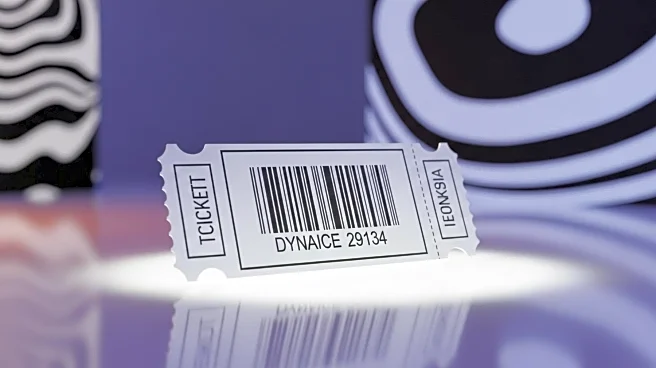What is the story about?
What's Happening?
Ticketmaster has agreed to change how it communicates ticket prices following an investigation by the Competition and Markets Authority (CMA) into the sale of tickets for the Oasis comeback tour. The CMA identified two main concerns: Ticketmaster did not inform fans in online queues that standing ticket prices were sold at two different price points, and prices would increase once cheaper tickets sold out. Additionally, Ticketmaster sold 'platinum' tickets at nearly 2.5 times the price of standard tickets without offering additional benefits. In response, Ticketmaster will now inform fans at least 24 hours in advance if a tiered pricing system is in place and provide more information during online queues. The company has also committed to avoiding misleading ticket labels.
Why It's Important?
This development is significant as it addresses consumer protection in the ticketing industry, ensuring transparency and fairness in ticket sales. The CMA's action sends a clear message to ticketing websites about the importance of clear and timely pricing information. Fans who spend money on concert tickets deserve accurate information upfront, and these changes aim to prevent future confusion and dissatisfaction. The move could lead to improved customer experiences and set a precedent for other ticketing platforms to follow similar standards, potentially benefiting consumers across the U.S. and beyond.
What's Next?
Ticketmaster has committed to implementing these changes within six weeks, or the CMA may enforce further action. The company has welcomed the CMA's findings, which confirmed no dynamic pricing or unfair practices were involved. Ticketmaster aims to enhance customer experience by improving communication about ticket prices in queues, building on existing measures like capped resale and strong bot protection. The CMA's actions may prompt other ticketing companies to adopt similar practices, leading to industry-wide improvements in transparency and consumer trust.
Beyond the Headlines
The Oasis ticket sale debacle highlights the psychological impact of pricing strategies on consumers, such as the sunk cost fallacy, where concert-goers may feel compelled to purchase tickets despite higher prices due to time invested in queues. This case underscores the need for ethical considerations in ticket sales and the potential for behavioral science to influence consumer decisions. The CMA's intervention may encourage more ethical practices in the industry, fostering a fairer marketplace for consumers.
















